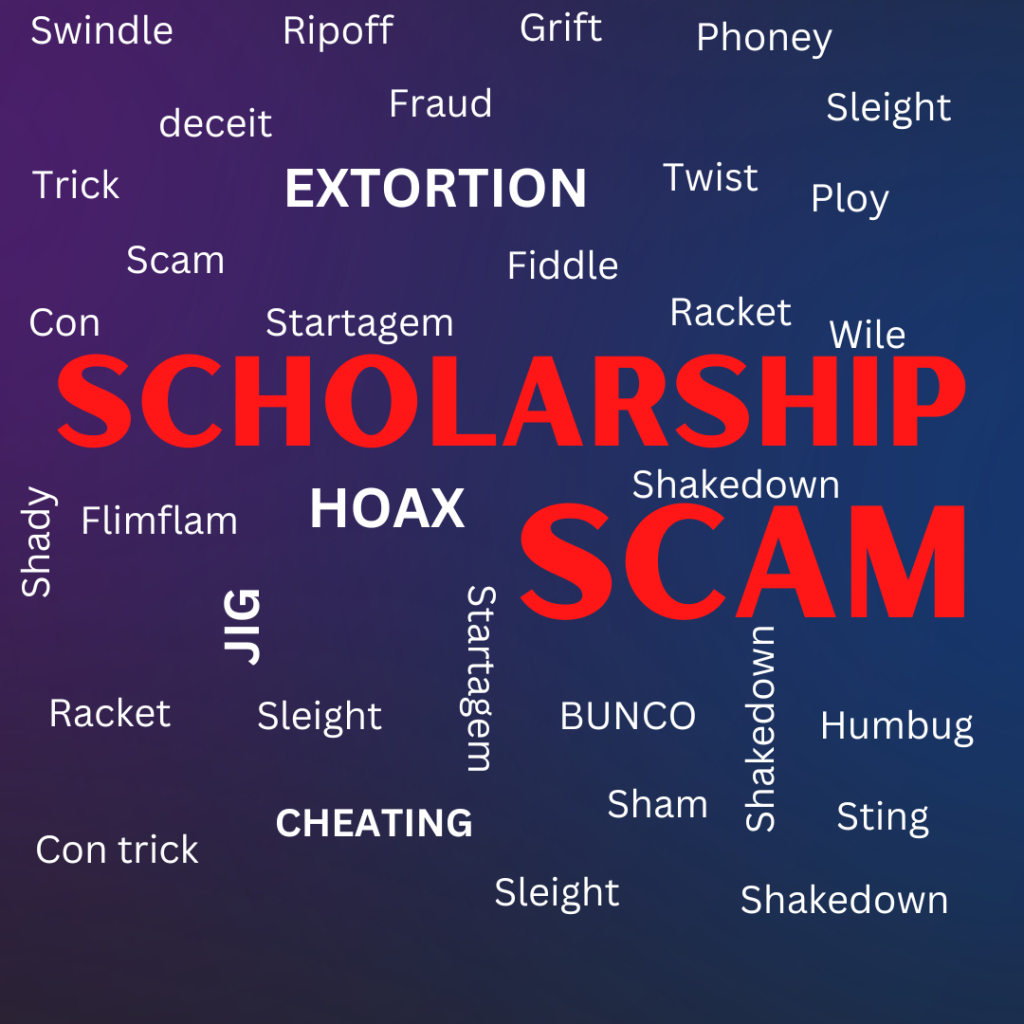Common Scholarship Scams And How To Avoid Them

Scholarships as we all know remain an amazing way to fund an academic journey. It is a dream of many students to get their academic pursuit financed via their preferred scholarship or any available scholarship.
Be it a fully-funded scholarship, Merit-based, need-based, or sports scholarships, Scholarships do go a long way in helping lessen the financial burden of many students. In actuality, the majority of scholarships only cover a percentage of the tuition.
With the excitement that comes with winning a scholarship, it is important to note that not all scholarships are genuine, hence the need to know about Common scholarship scams and how to avoid them.
Several hundred thousand students and parents fall victim to scholarship scams annually. According to a number of sources, the victims of these scams lose hundreds, if not millions, of money annually. Scam organizations frequently use official-sounding titles with phrases like “National,” “Federal,” “Foundation,” or “Administration”. The aim is to resemble actual government institutions, grant-giving foundations, education lenders, and scholarship matching services.
It’s important to understand how to spot and avoid the numerous scholarship scams that prey on innocent students. This blog post will go over the significance of understanding scholarship scams and your options for self-defense.
Scholarship Scams
You can lose money or delicate personal information that can be exploited for identity theft if you become a victim of a scholarship scam. Scams involving scholarships can seriously harm your income and prospects. Scholarship scammers can also waste your time and prevent you from discovering real scholarships that will help you pay for your school.
Knowing how to spot and subsequently avoid scholarship scams is crucial because they may be emotionally and financially harmful. The most typical scholarship scams that students and parents fall for are listed below;
- You’ve Been Selected
- Advance Fee
- Scholarship Search Engine
- Fake Scholarship Provider
- Requiring an Application Fee
- Guaranteed Scholarships
- Requesting Personal Information
- Pressure to Act Quickly
- Offers that Sound Too Good to be True
The ‘You’ve Been Selected’ Scholarship Scams:
This type of scholarship scam uses a message format to reach out to you notifying you of winning a scholarship you did not apply for. This happens to be one of the most prevalent scams, it deceives students into believing they have won a scholarship they never applied for.
The message could be sent through a mail, carrier or any possible format the scammer believes will carry the most weight.
In some cases, the scammer may go ahead to ask for some personal information.
The ‘Advance Fee’ Scholarship Scams:
In this format of scholarship scam, the scammer will promise to assist you in getting a scholarship in exchange for a payment, typically several hundred dollars. If you don’t get the scholarship, they might additionally offer to return the fee. Of course, the issue is that the scammer vanishes after you’ve paid the price and you’ll never hear from them again.
Scholarship Search Engine Scams
Students are scammed into believing they have discovered a scholarship search engine that will assist them in finding scholarships in exchange for a fee by this fraud. The truth is that you can find the same information for free on other websites and that it is frequently out of current.
Also Read:
- Student Visa | How to Successfully Apply for Student Visa
- TOEFL vs IELTS: WHICH IS MORE PREFERABLE TO TAKE TO STUDY ABROAD?
- Top 5 Scholarship Destinations for Immigrants
- Banting Postdoctoral Fellowships 2023 | Eligibility & Application
- How to Write a Scholarship Essay With Example
Fake Scholarship Provider Scams
To deceive students into believing they are applying for a genuine scholarship, the scammer will develop a fake scholarship provider. Students who apply will be required to submit personal information or pay a fee, which the scammers will exploit to steal the applicants’ identities or disappear with the money. This simply means that not all scholarship providers are genuine.
Requiring an Application Fee
Scholarships that are legitimate can be applied for without cost. A scholarship that asks you to pay an application fee is probably a hoax. Don’t pay, make some more enquiry.
Guaranteed Scholarships
You cannot be assured that you will obtain a scholarship. A scholarship is probably a scam if it claims a 100% guarantee. Scholarships are awarded based off eligibility and merit. Although there are some steps you can take to increase your chances, there is no 100% for that.
Requesting Personal Information
Avoid applying for scholarships that ask for private information like your social security number or credit card details. Typical requirements for legitimate scholarships are just your name, residence, and academic history.
Pressure to Act Quickly
Pressure techniques are frequently used by scammers to compel you to take action right away. Although they have deadlines, legitimate scholarships are not always in a rush.
Offers that Sound Too Good to be True
Scholarships that appear too good to be true usually are. Be cautious of offers to pay you a lot of money for little effort or of scholarships that are open to everyone.
How To Avoid Scholarship Scams
Now that you know of some of the most frequent scholarship scams, here are ways on how you can avoid them and not fall victim to them.
Always do your homework on the scholarship before applying to prevent these frauds. Verify the scholarship provider’s reputation by visiting their website. If you are not certain that the scholarship giver is reputable, never provide personal information. Ask queries of the scholarship provider’s customer support if you have any doubts.
Keep in mind that if something seems too good to be true, it generally is. Always exercise caution and investigate a scholarship before applying. You can guard against scholarship fraud and guarantee that you get the money you require to pay for your study by exercising caution.
